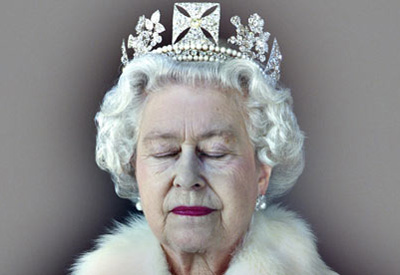
At the end of last year’s long, hot, flash-mob summer, Philadelphia Mayor Michael Nutter stood at a church pulpit in the City of Brotherly Love doing his best Bill Cosby impersonation. Nutter chided young black kids to “Take those God-darn hoodies down, especially in the summer….You have damaged your own race.” He also flayed parents for not keeping a watchful eye on their kids after a string of random violence in the Center City shopping and entertainment district.
A recent Pew survey found that while Nutter enjoys a high overall favorability rating, 74% believe that crime is a very serious problem in the city. In response, Nutter has embarked on a “Fun Safe Summer” PSA campaign which a Philadelphia blogger suggests is basically a plea against flash mobs.
Philadelphia’s only the flagship. Rahm Emanuel used tough talk against a spate of wildings in downtown Chicago last year, and other cities are trying to defuse these powder kegs. After widespread violence at last year’s Coventry Arts Festival, Cleveland Heights, OH city officials have canceled this year’s events.
In Kansas City, a team of researchers studied the scourge of flash mobs that culminated last summer in a shooting in the city’s prestigious Plaza shopping district. They suggested that violent flash mobs arise from boredom and a lack of entertainment options. The researchers suggested that activities such as a “College Basketball Experience” or underground rap venues would help squash the problem.
A friend of mine who was passing through the Plaza district on the night of a flash mob told me that businesses in the Plaza area had threatened to close up shop if the city or Plaza management didn”t do something about the violence. The city responded by instituting a curfew, much as Mayor Nutter has done in Philadelphia.
Violent flash mobs are indicative of several long-term social trends. Daniel Patrick Moynihan’s warnings from the 1960s about the disintegration of the family”particularly the black family”have come true. Charles Murray has suggested something similar could be happening among whites. Decades of this social shift away from active paternalistic influence have led to a cultural sickness.
My lifetime engagement with the pharmaceutical industry has been minimal. This, I know and regret, is un-American. Every red-blooded native-born citizen of this republic is an amateur pharmacologist. He can tell you the names and proper dosages of drugs, as well as their indications and side effects. I have tried to Americanize myself in this respect, browsing the Physician’s Desk Reference in libraries, but all that came out of it was a spoof column once.
Until my lymphocytes got out of line, my entire self-medication regimen was a couple of Tylenol when I had a headache. An American-born friend even scoffed at me for that. “It’s an antipyretic,” she explained patiently, as to a dim-witted child. “For pain relief you want ibuprofen.” I had to look up “antipyretic,” though I waited until she’d left.
Then the Big C came calling, chemotherapy commenced, and suddenly I was in pharmaceutical hell. Allopurinol; ciprofloxacin; methylprednisolone; prochlorperazine; ondansetron…whatever they are, it wasn’t enough. My appetite was shot and food tasted awful. On a visit to the oncologist two months into the chemo I learned that I had lost twenty pounds, dropping from 195 to 175.
The doctor frowned and shook his head. If I went on slimming at that rate, he said, he’d have to recalibrate the entire treatment. Typical medical professional: Me being able to feel my backbone through my belly button was OK, but him having to rework his sacred schedules would be a cosmic disaster.
(My son was born on a July 3rd after being induced. The actual due date was July 4th, which would have pleased me to no end, but as a medical friend explained to me later: “OB/GYNs don’t like working on public holidays any more than you do.”)
“I’ll give you a prescription,” said the doctor. “Appetite enhancer.”
I took the prescription to my pharmacist and gave it to a beautiful young woman. Half an hour later I called in to collect it from a different, but equally beautiful, young woman: Let us call her BYW2. She handed me a small bottle of liquid.
(Brief pause here for a general-interest question. What is it about pharmacology that attracts so many hot babes? There is more female pulchritude behind the average pharmacist’s counter than you get in an Olympic beach volleyball team. Has the whole industry been quietly absorbed by the Hooters chain, or what? OK, back to main narrative.)
BYW2: That’ll be $60, please.
Derb: Say what? But I have insurance!
BYW2: Yes, it’s $60 even after the insurance.
Derb: Good grief! What would it be without the insurance?
BYW2 (consults computer): $780.
Sell utilities! Buy pharmaceuticals!
You get what you pay for, though. That stuff is a miracle drug. Within a couple of days I was eating like a pig. I could have eaten an actual pig, properly roasted. I was eating the leftovers on family members’ plates. I was eating free snack samples in the mall, then circling around for seconds. I was scavenging forgotten week-old potato salad, the bloom of mold already visible on it. I was popping boiled eggs like jelly beans. I was chomping through bags of potato chips, normally of no interest to me. “You can’t eat just one” used to be the slogan. I was having trouble holding the line at one bag. Toby’s Purina Beneful was starting to look good. (Not the wet food, though. I was not that far gone.)
Two female soldiers are suing the US military for “violating the rights of servicewomen by excluding them from certain military positions and from ground combat units because of their gender.”
In wars past, it has been men fighting and men dying. Female nurses and medics have been killed, but it is mainly men who have sacrificed their lives.
Women have never been drafted. I have argued with some who say: “Women should be treated exactly equal to men in the military.”
“And if there was a draft?” I ask them.
“Well, then women should have a choice if they want to go or not,” they respond, unaware of any logical contradiction.
Perhaps it is now anachronistic to regard the military as an institution where machismo is encouraged and rewarded. Was it not the last of such an institution? In corporate America or in the classroom, a male perspective and a macho attitude seem to have been punished, and even criminalized, through a variety of cultural changes and sexual-harassment laws. Can”t we have one last place where boys can be boys?
After the repeal of Don”t Ask, Don”t Tell and now what seems the inevitable inclusion of women in combat forces, the answer appears to be no.
It is sad to see the romantic, Hemingwayesque vision of war pass and to enter an era where the military is seen as simply another career field where potentially frivolous lawsuits cause management to be defensive and cautious. This must surely put a damper on the thrill of battle.
Military acquaintances have told me that boot camp has become less confrontational. During boot camp, drill sergeants used to provoke new soldiers by questioning their masculinity, calling them a “Nancy” or a “sissy.” Since gays are now allowed in the military, that would seem to be off-bounds and the drill sergeants would be guilty of hate speech.
If being male is not required for combat positions, questioning a soldier’s masculinity becomes irrelevant, though this was a good method of encouraging and reinforcing such manly virtues as bravery and stoicism. Rather, being a soldier will now become a kind of technocratic career where one must be as politically correct and sensitive as in any other miserable line of work.
Heidi Brown of Forbes magazine explains that women in the military suffer “stressful work-life balance issues.” Did the soldiers who stormed Normandy agonize over “work-life balance issues”?
MIT’s Daron Acemoglu is a rock star among economists, one of the ten most cited in his profession. This is largely because of the paper the Istanbul-born Armenian cowrote in 2001: The Colonial Origins of Comparative Development. Other economists have found that it provides a suave way to finally answer the embarrassing question of why, in the 21st century, some countries are rich and some are poor.
Acemoglu has a big new book out with James A. Robinson, Why Nations Fail: The Origins of Power, Prosperity, and Poverty, that makes his case at great length.
To understand Acemoglu’s professional popularity, you have to grasp how awkward the major features of global economic reality are to careerist economists. If you look naively around the world, you might get the impression that, say, Chinese territories such as Taiwan, Singapore, and Hong Kong have been economically dynamic because they have a lot of Chinese people in them. Moreover, the Overseas Chinese control much of business in Southeastern Asia, so we might assume that the Chinese tend to have a lot on the ball wherever they go.
The epochal conclusion that Deng Xiaoping, urged on by Singapore’s Lee Kuan Yew, drew from this in the late 1970s was that if all the Chinese folks in the world were getting rich except the Maoist Chinese, the problem must lie more in the “Maoist” than in the “Chinese” part. And, indeed, once liberated from Mao’s dogmas and whims, the Mainland Chinese responded with one of history’s greatest economic surges.
To an economist looking for invitations to conferences, however, the danger of adopting the Lee-Deng perspective is its flip side: Some other peoples, such as black Africans, New World Indians, and Pacific Islanders, have tended to lag notably behind Northeast Asians and Europeans, whether at home or abroad, and under all sorts of ideologies and institutions.
Acemoglu’s contribution was to come up with a regression analysis that, he claimed, showed that Third World poverty was the fault of those all-purpose bad guys, European imperialists. In colonies where early Europeans settlers faced low risks of dying from tropical diseases (such as Massachusetts), they set up good “inclusive” institutions. But in colonies where white men died like flies (such as Nigeria), they set up bad “extractive” institutions.
Institutions are (practically) everything, you see. If, say, the Central African Republic is poor, it’s not because it’s a republic in Central Africa (or because poverty is the default condition of humanity), but because it has extractive institutions. And that’s because Europeans didn’t set up inclusive institutions for the Central Africanese.
If Australia or New Zealand or Canada are richer than the Central African Republic, it’s not because Australia or New Zealand or Canada are full of Europeans, it’s because the Europeans hogged the inclusive institutions for the places they colonized. Or something. Acemoglu wrote:
These results suggest that Africa is poorer than the rest of the world not because of pure geographic or cultural factors, but because of worse institutions.
I love Queen Elizabeth. I love her pastel-colored outfits. I love her little black handbags. I love the regal look in her eye. I even love it when she has to wear her silly crown and sit on a throne in Westminster Abbey covered in ermine and diamonds.
This week marks the 60th anniversary of her coronation. Only Queen Victoria ruled longer. England is ablaze with tributes to Elizabeth, and I have flown in especially for the celebration of her Diamond Jubilee.
Ten years ago I watched the Golden Jubilee on television and sobbed through the whole thing. The beauty and magnificence moved me to tears.
This year I am most excited about finding my spot along the Thames to watch her flotilla pass by. A special riverboat has been constructed for the occasion. But this is one small part of what’s in store. Concerts, parades, flyovers, and countless other festivities will have all of England celebrating for the next seven days.
It’s too bad we don”t have such an event in America. If not for that whole representation-and-taxation business, we might.
I wish I were a queen just so people would step aside when I am on my way somewhere. Walking down London’s busy streets is harrowing for a run-of-the-mill pedestrian. It is likely to be even worse now that everyone is in town to pay reverence to the constitutional monarch of sixteen sovereign states.
Her Majesty’s life in pictures for ye philistines:









For one brief, pixelated moment last week, Red and Blue America came together (as it were). This rare harmonic convergence was prompted by…what?
A natural disaster that snuffed out thousands of lives? A terror attack of unprecedented magnitude? The unexpected passing of a beloved national figure?
None of the above. No, the nation’s embattled left and right briefly embraced in No Man’s Land to condemn, loudly and in unison, a fake picture of a semi-celebrity in an obsolete magazine.
Larry Flynt’s Hustler“yes, it still exists and he’s pretty much alive”Photoshopped an image of female conservative commentator S. E. Cupp to make her look like she’s performing fellatio.
In response, her fellow conservative writers and broadcasters confidently predicted that their media opponents would remain closed-mouthed about this outrage.
Normally, that would”ve been a sound forecast. Liberals in the media have been notably silent regarding less vulgar but still sexualized Photoshop jobs on other conservative women writers such as Ann Coulter and Michelle Malkin.
In 2009, Playboy listed Malkin, Peggy Noonan, and others as “10 Conservative Women We”d Like to Filibuster.” (“We speak, naturally, of the hate f*ck,” the author explained.) The piece was scrubbed from their site by sundown, because conservatives”and only conservatives“raised an unholy stink.
For all their bloviating about “civility” and “tolerance,” leftists are notoriously foul-mouthed, as well as”to employ their own tediously accusatory jargon”racist, sexist, and homophobic.
But with l”affaire Cupp, the right blew it prognostication-wise.
For reasons that remain unclear, the left immediately picked up this Photoshop of Cupp as their bloody“or, more accurately, jizz-stained”shirt of the week. Reliably liberal outlets such as jezebel.com and salon.com slammed Hustler. So did Rush Limbaugh joke/punchline Sandra Fluke.
Weird. Weren”t these the same types who made Terri Schiavo jokes, snarked about Rick Santorum’s dead newborn, and wished death upon the extremely fecund mom of 19 Kids and Counting?
Didn”t a gay male columnist speculate for weeks, in the pages of what was once considered a serious magazine, upon the tilt of a particular governor’s uterus?
Yet now they”re defibrillating chivalry?
Then Cupp appeared on The View to commiserate with the gals, and I thought I understood:
Cupp may be a conservative, but she’s also Big Media. And Big Media cares first and foremost about itself and its own.
So we got to see Whoopi Goldberg “tsk” in Cupp’s direction, “This is offensive. This is not the dialogue that we have when we disagree.”
(Goldberg is the same bombastic female who shrugged off Roman Polanski’s assault on a drugged, underage girl as not “rape-rape.” )
(PS: Polanski’s comparing himself to Alfred Dreyfus now. J”abuse!)
After taping John Stossel’s show on May 16 in New York, the Mrs. and I took the 10 a.m. Acela back to Washington. Once we had boarded the train, who should come waddling up the aisle but Bill Kristol.
The Weekly Standard editor seemed cheerful, and we chatted about the surge in Mitt Romney’s popularity and prospects.
I did not ask what he had been doing in New York, but thanks to the website Mondoweiss, I found out. Kristol was there for a May 15 “debate” with Jeremy Ben-Ami of J Street, the pro-Israel organization, at B’nai Jeshurun synagogue on the Upper West Side.
After listening to Kristol, writes Phil Weiss, “I am still reeling.”
“Kristol was treated like royalty and came off as … a Republican Party warlord,” bragging “about how all the hostile elements to Israel inside the Republican Party were purged over the last 30 years—(and) no one (now) dared to question the power of the Israeli lobby.”
“The big story in the Republican Party over the last 30 years, and I’m very happy about this,” said Kristol, is the “eclipsing” of the George H.W. Bush-James Baker-Brent Scowcroft realists, “an Arabist old-fashioned Republican Party … very concerned about relations with Arab states that were not friendly with Israel … .”
That Bush crowd is yesterday, said Kristol. And not only had the “Arabists” like President Bush been shoved aside by the neocons, the “Pat Buchanan/Ron Paul type” of Republican has been purged.
“At B’nai Jeshurun,” writes Weiss, “Kristol admitted to playing a role in expelling members of the Republican Party he does not agree with.” These are Republicans you had to “repudiate,” said Kristol, people “of whom I disapprove so much that I won’t appear with them.”
“I’ve encouraged that they be expelled or not welcomed into the Republican Party. I’d be happy if Ron Paul left. I was very happy when Pat Buchanan was allowed—really encouraged … by George Bush … to go off and run as a third-party candidate.”
Kristol’s point: Refuse to toe the neo-con line on Israel, and you have no future in the Republican Party.
Ben Ami seemed equally exultant: “We’ve won the war; we won the war,” he told the audience. Ninety-nine percent of Congress now votes almost 100 percent pro-Israel.
But Ben Ami appeared nervous about how this unanimity in the Congress behind Israel had been achieved:
“I very seriously and absolutely do believe that a significant percentage of American members of the House of Representatives and the Senate are intimidated on this issue (of Israel). … They worry about the ramifications of speaking out. … They are worried about the attacks that they will receive.”
Ben Ami said the 50 members who have criticized Israel are courageous, but, “Another 200 are scared to do it.” Haaretz.com reports Ben Ami as saying congressmen “live in fear” of the Israeli lobby.
I have trouble accepting the idea that Hitler was a vegetarian. He just didn”t seem that pushy.
Apparently others feel the same way. When I started typing “pushy vegetarians” on Google, it auto-filled the rest after “pushy v”.”
Of all the annoying identity movements under the giant rancid rainbow, what is it that causes militant vegetarians to be the most obnoxious? What is it about the Vegetarian Personality that makes me wish someone would cannibalize them? What is it about being lectured by vegans that makes me want to drive straight to Wendy’s and order a Classic Triple?
Is there a chemical in bean sprouts that causes self-righteousness, or perhaps an enzyme in beef that minimizes sanctimony? If you are what you eat, radical vegetarians must be eating something very unpleasant. They bare their tempeh-nibbling fangs to reveal the rabid hostility that always seems to be a hallmark of those who feel compelled to make a grand public display of their “compassion.” But hilariously, a recent study suggests that “exposure to organic foods” leads people to be less altruistic.
The mouthier vegetarians I”ve known seem to respect all life forms except for those that happen to be in the room with them at any given time. Because they are opposed to animal suffering, they apparently feel entitled to make every human being around them suffer. It reminds me of an exchange between George and Jerry on Seinfeld:
GEORGE: I can sense the slightest human suffering.
JERRY: Are you sensing anything right now?
If God didn”t want us to eat meat, you”d think he would have made tofu taste better. But I”m not even suggesting that red meat is healthy or that all vegetarian diets are unhealthy. I don”t possess adequate nutritional knowledge to act like a True Believer either way. This isn”t about health, it’s about a certain personality type. There’s a huge difference between eating vegetarian and acting vegetarian.
I realize all vegetarians don”t act that way. But a repellent minority insists on yelling so loudly, you can”t hear what the other ones are saying.
So I”ll respectfully spare those who keep their precious food choices to themselves. I”ll focus on the more radical factions such as vegans”i.e., those who eschew all animal products including dairy”as well as the more extreme fringes such as fruitarians and, way out near Pluto, the breatharians. Far more than simple vegetarianism, veganism seems rooted less in genuine health concerns than in lunatic apparitions such as “animal justice.”
It’s not like such extreme beliefs are sometimes used as a pretense to commit bombings or arson. It’s not as if nutritionally psychotic parents have passively allowed their children to die in Georgia, Florida, France, England, or New Zealand.
It’s been suggested that a deficiency of Vitamin B-12, which is gapingly absent from the vegan diet, can lead to psychosis. There’s also a proposed eating disorder called orthorexia nervosa that attempts to explain obsessive fixations on dietary purity.
Still, I suspect there was something wrong with many of these people long before they stopped eating animal cadavers. They remind me of the compliant bottoms in what Erich Fromm described as the master/slave equation that forms the complete “Authoritarian Personality,” a “masochistic and submissive individual, who fears freedom and escapes into idolatry.”
Like all True Believers and Authoritarian Personalities, militant vegans adhere to some common CAUSE they deem far more important than their own lives”a noble and holy cause which, paradoxically, leads them to act highly ignoble and profane.
Sunil* was a well-fed Indian shipping millionaire. I”d heard about him through people who worked for him. I was helping the British Army build a prison in Iraq and would wonder about Sunil. He was in charge, the workers would say, although he was hardly ever there. I knew how much he was getting paid. It was hard not to be impressed by Sunil.
The most impressive thing was what he did when things went wrong. He didn”t call managers and chew them out on the phone. He didn”t send long emails from safer countries. He got on the plane. And then Sunil would be there on the ground with everyone else, dodging bombs. I grew to respect that about him. A millionaire in the danger zone. The first time I saw him he was already important to us in the military. Whereas I drove a beat-up civilian 4×4, Sunil was given a sporty, shiny black Range Rover. Wearing Ray-Bans, he hopped out of his air-conditioned chariot and shook my wrist. I noticed the heavy Rolex. Rich Indians liked to show their wealth, and poor Pakistanis noticed.
I was the man who was making things happen for him in Basra, and he wanted to know more about me. We walked around the prison and as the mortar siren wailed, he lit a cigarette and asked me how it was going. I told him the truth”it was going as well as anything could go in a lawless place where everyone was trying to screw money out of the military budget. He laughed.
I told him I”d do my best because that’s what the Army had taught me to do and I wasn”t there for the money, I was there for the Army. He suggested going for a spin in the Range Rover. I learned more about him as we drove around the £70-million complex we were building for the Iraqi Army. The first stop was the bus station. There were battered buses with bare tires driven by Pakistanis who brewed tea in the shade and talked about going home.
They”d worked for Sunil in Dubai and he told me he”d paid them a bit more and asked them to join him in Iraq. The Pakistanis told me they knew it was dangerous, but what else could they do? They couldn”t read or write but they could drive, so they drove and sent money back to Pakistan”via one of Sunil’s bank accounts, of course. Sunil charged the military a hefty fee to drive troops around the airfields, but it was still cheaper than getting a Western soldier to do it. It cost over $1,000 a day to deploy a soldier in Iraq. No wonder the private military companies were everywhere.
As we drove to another one of Sunil’s operations he pointed out the Portaloos, the blue plastic boxes that warmed in the sun and made soldiers hold their breath as they took a crap. Sunil had brought the toilets in, too. Some days you didn”t need to hold your breath, as a person we called the “honey sucker” had cleaned the toilets. We always wondered if the guy who did that job earned a fortune. He didn”t; he did it for a few dollars. The Kuwaitis wanted a piece of the pie when it came to toilets and charged a fortune for the loos. Sunil and his team ended up buying them in Italy and driving them over, as it was cheaper. At least that’s what he told me”I was the Army’s man, not his. He was careful with some figures but honest with others. He knew I talked to the same people and saw the same budgets he did.
Then we got to the washing center. Sunil had set up lines of washing machines in a warehouse. On the second floor were all the beds of those who washed sweat and sand from Army uniforms”sometimes blood, but mainly sweat and sand. A wagon would go to each camp and pick up the washing bags full of uniforms. The laundry workers were all Pakistanis and Bangladeshis with Qurans who stuck prayers printed on shiny holographic stickers above their beds”all Muslims. All the managers were in an office downstairs. They were Sunil’s friends, all Hindus from India who”d thank him for bringing them alcohol. The divide was obvious.
The uomo nuovo in Italian politics is a professional comic called Beppe Grillo, whose slogan is “Vaffanculo!“ (Fuck off!) He’s opposed to everything, it seems, except wind farms. Such are the consequences of the euro crisis, whose cause is simple”too much sovereign debt in countries such as Italy.
Italy’s tragedy is that it has never had a proper conservative party to curtail the state and its excesses, because the nation’s dominant right-wing forces are Catholicism and fascism. Catholics and fascists are both keen on intervention by totalitarian higher bodies such as the state in both life and work, and they are hostile to individual freedom and the free market.
The Italian right has therefore more in common with the international left than it does with the American or British right. As a result, there has been no political force able to stop the Italian state’s long march into every nook and cranny of Italy’s economic and social life.
I see the state’s deadly hand everywhere in the petty day-to-day tyrannies. It is illegal for a shop owner not to close his shop every weekday at lunchtime for three hours. If the police catch you driving with more than twice the alcohol limit in your blood, they seize your automobile and sell it. A café can serve food, but only with plastic cutlery because it is not a restaurant. At the end of the evening, a musician who sings in a bar must compile a list of every song he sang and send it to the copyright office.
One of the things that disturbs me most about Italy is the judicial system’s terrifying slowness and incompetence. Professional judges investigate and prosecute crime and have the power to lock a suspect in prison for months without charge while they try to find enough evidence to charge him. Frequently, the suspect is released without charge but with his life ruined. Even if a trial occurs, it takes many years to conclude.
The other day, an old friend and I rediscovered each other after many years and she sent me an email about her recent trip to Italy to see the famous Mille Miglia race which takes place on Italy’s roads each spring. She wrote:
Italy is such a great country, I can understand why you’d never ever want to leave. If you tried to do that rally in England, everyone would be brimming with resentment and complaining that the drivers were going to present a threat to the health and safety of their villages”whereas in Italy everyone’s out on the streets having a great time. Wish I was Italian.
Yes, well, now, where should I begin?
I have taken a lot of flak from Taki’s Mag readers for “spitting in the plate I eat off,” as the Italians say, with what are dismissed as whining critiques of the Italians. But I still prefer Italy, and all that it entails, to Britain”regardless of the Italians! So there.
Italy’s countryside and coastline, what’s left of them, are stunning, as are its old city centers. Awestruck by the explosion of Italian artistic genius that was the Renaissance, I ask myself: Why Italy? Why the Italians?
Italy’s health and safety rules are as life-sapping and tyrannical as those in Britain. To these we must add the rules that destroy liberty in every other aspect of life not covered by health and safety.